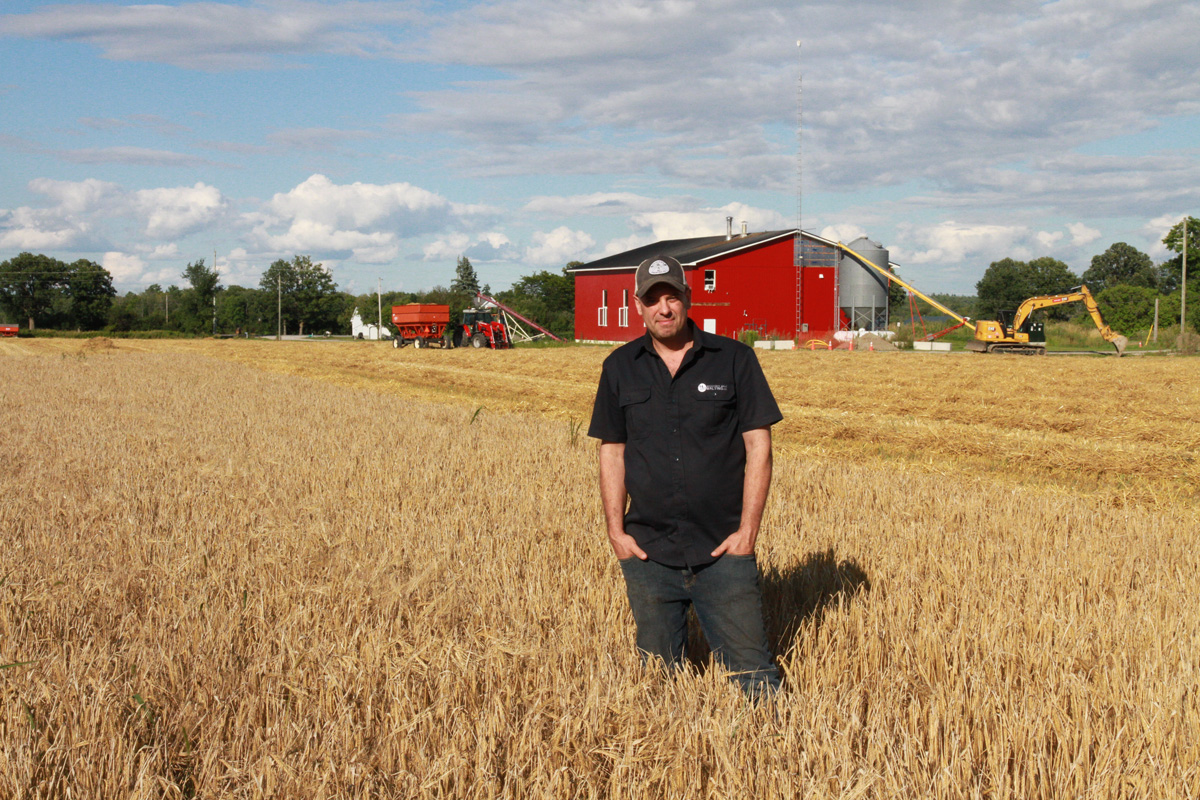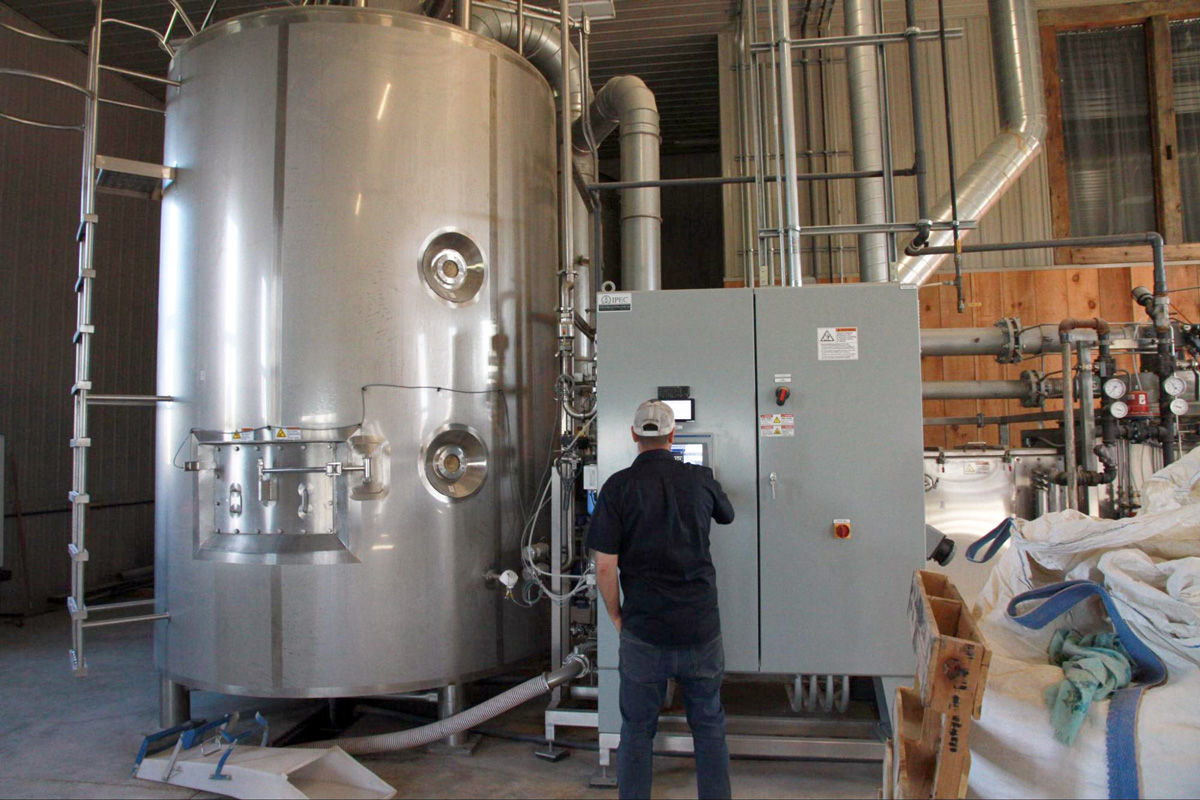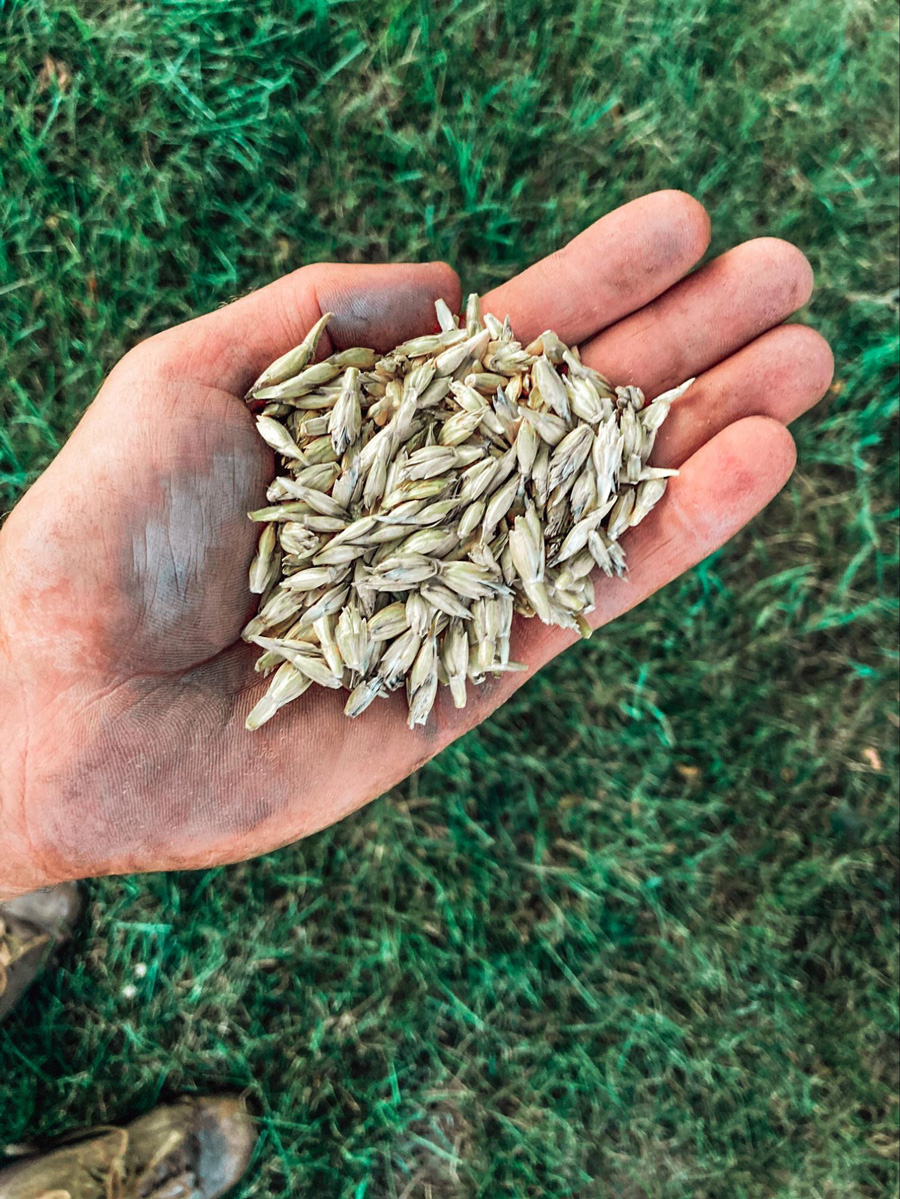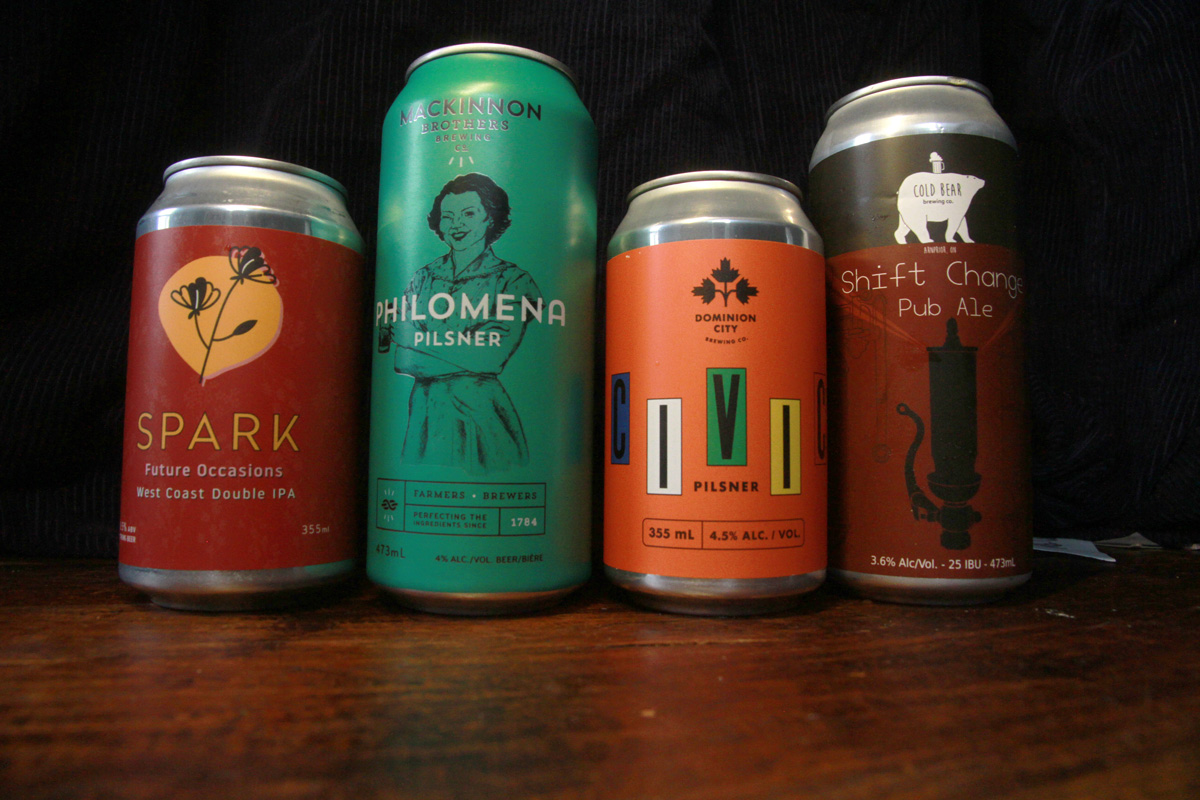Mississippi Mills Malt, Esma barley and a brief history of Ontario malting barley

It’s a sunny day in late spring and I’m riding through a dusty farm field outside Pakenham, Ontario with Will Bowes. We follow the planting line of his father Dean Bowes, the owner of Mississippi Mills Malting, as he sows barley seeds into the fields. As we trundle through the field, Will rattles off a plethora of tractor knowledge that can only be obtained by growing up on a generational farm. Ripping along a field watching this year’s barley have being planted is a blissful experience.
It’s easy to get lost in thought about how these little seeds will emerge in the late summer fully grown and ready for harvest to make tasty beer. The barley variety is called Esma. Dean is a trained forensic accountant and a farmer in addition to being a homebrewer and craft maltster. He’s not only sowing the seeds for this year’s harvest, but for the growth of future generations using locally-grown malting barley in the Ottawa Valley.

Finding a way to support the family through the farm
As we traverse the farm and maltings, Dean’s passion for farming and what he is doing with Mississippi Mills Malting pulls me in. The idea to build the maltings started a few years after he bought his uncle’s house and took over the farmland on which it was situated. The land has been farmed by his family for generations. It was a place of business where his father and uncle sold farm equipment to bring in extra income to support the local farmers and his family. The experience helped shape how Bowes has decided to build his business on the farm, not only with the land but also with the maltings.
In the early 2010s, he started to think about how he could get the farm to support his family and provide a business that could last for generations, in the same way the farm equipment business supported him growing up. It was something that sat in his mind while he worked for Deloitte in forensic accounting. There was just something about farming and working in the agriculture industry that he couldn’t shake. As Dean and his family started farming again, they started buying farm equipment as they could afford it, and hiring neighbours to help where they did not have the equipment, laying the foundations for the future maltings.
As he looked for ways to make the farm a sustainable business, he was attracted by the camaraderie of the brewing industry and how similar it is to the way farmers work together to grow their community. He crunched the numbers and realised there was an opportunity to create a sustainable business with the farm: craft malting. Inspired by businesses such as Barn Owl Malt, Dean recognized that there was a demand for locally grown and malted barley in Ontario, and he thought it might be worth the investment.
It took quite a few more years, sifting through advances in equipment, drinking more than a few research beers and the choosing to keep working in forensic accounting while running the maltings to make the dream a reality. Eventually, in 2020, Mississippi Mills Malting opened shop just as there was a European malting variety becoming widely available in Canada after successful trial crops. If you are drinking a beer made with Ontario grown barley, there is a very good chance you are drinking a pint brewed with Esma barley.

Esma barley makes its debut
Esma is a shorter European malting barley variety that has only recently become commercially available in Canada. To get to the point where it could be grown on a larger scale there needed to be a large number of trials across Canada to understand if it was a viable choice for farmers. Trials were completed through SeCan, a large farm seed distributor, which worked with farmers across the country to learn more about how the variety grew in the wide-ranging Canadian climate. One of the early farms to trial and adopt Esma was Miller Seed Farm, which is owned by the same family as Mackinnon Brothers Brewery in Bath, Ontario.
As a multigenerational seed farmer and Heriot-Watt educated brewer, Dan Mackinnon is humble in the way he presents his knowledge and and the impact their work had had in brewing and growing malting barley in Ontario. He talks about the difficulty of finding a malting barley variety that can work well in Canada, and more specifically, Ontario. A big part of Mackinnon Brothers’ philosophy is to use ingredients from the farm in the beer they produce. This means using malting barley grown at Miller Seed Farm, malted at Barn Owl to their specifications, then brewed in a variety of their beers.
This has meant that they have had a very connected view of how barley varieties impact yield for farmers, ease of use for maltsters and flavour profiles in beer. Over the years, they have used varieties that were more widely available because of their popularity in the prairies, such as AC Metcalfe and CDC Copeland, but pretty early into their trials with Esma they figured out it was a great fit in the Ontario climate. Their adoption has impacted the direction of the Ontario craft malting industry and helped people like Dean determine what malting barley varieties to plant and malt to build a sustainable business.

Harvest time, beer time
It’s months later, during the harvest, and I’ve met up with Dean and Will to see how the summer has gone for their barley. We walk through the fields observing this year’s crop and talk about how local brewers such as Spark Brewing, Cold Bear Brewing, and Whiprsnapr Brewing have been taking on the use of local grain. I get to see the product of a lifetime of hard work and passion, the barley that a variety of brewers in Ontario will be using in their beer, and the potential for how it can create a positive impact in the brewing industry.
It has become apparent that locally-grown barley is being sought after by brewers; a number of brewers have even developed their brand image around it. You can see this with breweries such as Dominion City Brewing, Matron Fine Beer, Sonnen Hill Brewing, Avling Brewing, Cold Bear Brewing, Mackinnon Brothers Brewing, and Spark Brewing. As these breweries have developed their recipes based on the use of local grain, it has led to a rise in the demand for the grain, boosting the growth of the craft malt market, resulting in more farmers being interested in growing malting barley varieties. This then pushes the seed producers to bring in higher yielding, more productive varieties for climates outside of the prairies and you get Ontario-grown Esma on a farm outside of Pakenham, Ontario. Then, on an early August day, it is harvested and malted for brewers to make beer with barley that was grown less than an hour from the brewery itself.
As we trundle along in the field, harvesting barley, Will follows along as Dean and I keep the harvesting line straight in the combine. It’s enjoyable work. The type of enjoyment that you get when you harvest that first vegetable from the garden. I look at the ripe fields around me and it makes me thirsty for the beer will be made with this year’s crop.




